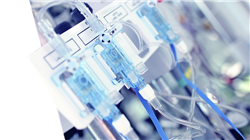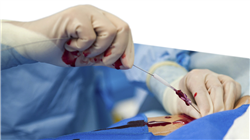University certificate
The world's largest faculty of medicine”
Description
Thanks to this 100% online Postgraduate certificate, you will develop skills to use Angiography equipment and you will deal effectively with Vascular Diseases"

According to the World Health Organization, cardiovascular diseases are the leading cause of death globally, reaching figures of up to 31% of deaths. Within this context, Vascular Angiography emerges as an essential diagnostic tool, allowing early detection and accurate assessment of diseases that can lead to fatal conditions. In addition, the continuous evolution of this set of techniques and their working tools obliges specialists to keep up to date in order to achieve a holistic mastery of them.
For this reason, TECH has designed this exclusive syllabus where students can analyze different arterial and venous puncture techniques to achieve maximum success in angiographic procedures. By addressing these criteria, physicians can reduce complications and improve their clinical results. At the same time, the Postgraduate certificate covers different contrast agents, such as iodinated and other less conventional ones like carbon dioxide and gadolinium chelates. In addition, it addresses how their use has become indispensable to optimize imaging results and minimize adverse effects such as Nephrotoxicity.
For the mastery of all the contents of this academic itinerary, the doctors have a disruptive methodology: Relearning. This didactic system promotes the gradual assimilation of the most complex concepts through repetition, while minimizing the investment of time and effort in having to memorize them. Also, the program is developed 100% online, another significant advantage that provides autonomy to the graduates, allowing them to organize their learning pace depending on their other obligations.
Also, the university program is supported by a variety of complementary materials such as articles, articles of interest and other materials. All of this is accompanied by explanatory videos, interactive summaries and self-assessment tests that enhance the comprehensive specialization of specialists, making this academic option a truly unparalleled opportunity.
You will access the disruptive Relearning system, based on the gradual reiteration of concepts and that provides progressive assimilation throughout the entire syllabus"
This Postgraduate certificate in Vascular Angiography contains the most complete and up-to-date scientific program on the market. The most important features include:
- The development of case studies presented by experts in Angiology and Vascular Surgery
- The graphic, schematic and eminently practical contents with which it is conceived gather scientific and practical information on those disciplines that are indispensable for professional practice
- Practical exercises where the self-assessment process can be carried out to improve learning
- Its special emphasis on innovative methodologies
- Theoretical lessons, questions to the expert, debate forums on controversial topics, and individual reflection assignments
- Content that is accessible from any fixed or portable device with an Internet connection
With an approach based on scientific evidence and real clinical cases, this program will provide you with the necessary tools to offer quality and safe clinical care"
The program’s teaching staff includes professionals from the sector who contribute their work experience to this specializing program, as well as renowned specialists from leading societies and prestigious universities.
The multimedia content, developed with the latest educational technology, will provide the professional with situated and contextual learning, i.e., a simulated environment that will provide immersive education programmed to learn in real situations.
This program is designed around Problem-Based Learning, whereby the professional must try to solve the different professional practice situations that arise during the course. For this purpose, students will be assisted by an innovative interactive video system created by renowned and experienced experts.
You will scrupulously follow the Radiological Protection protocols, guaranteeing the safety of both patients and healthcare personnel"

You will delve into the most avant-garde techniques for Femoral and Axillary Artery Puncture"
Syllabus
Through this university program, physicians will have a solid understanding of the principles of vascular anatomy. The syllabus will go in depth in the management of patients with vascular pathologies, taking into account factors such as clinical history, psychological preparation or informed consent. Likewise, the syllabus will provide graduates with sophisticated tools such as Access Needles, Dilators and Catheters. In line with this, the didactic materials will provide specialists with guidelines for the safe administration of sedatives during procedures. Therefore, graduates will obtain competencies to handle Angiography equipment and perform therapeutic procedures efficiently.

A high level syllabus that covers, in only 150 hours, the latest scientific postulates in Hemodynamic Stability and Thrombosis Prevention"
Module 1. Vascular Angiography
1.1. Evaluation and Management of the Pre-procedure of the Patient with Vascular Pathology
1.1.1. Clinical History and Physical Evaluation
1.1.2. Psychological Preparation and Informed Consent
1.1.3. Evaluation of Contraindications and Risk Factors
1.2. Safety in Vascular Interventional Procedures
1.2.1. Radiological Protection for the Patient and Staff
1.2.2. Infection Prevention and Sterility Control
1.2.3. Emergency Procedures and Response Plan
1.3. Tools in Vascular Intervention: Access Needles, Guides, Dilators and Catheters
1.3.1. Access Needles
1.3.2. Guides and Advancement Techniques
1.3.3. Dilators and Catheters
1.4. Contrast Agents in Vascular Intervention
1.4.1. Iodinated Contrast Agents
1.4.2. Evaluation of Renal Function and Risk of Nephrotoxicity
1.4.3. Adverse Reactions to Contrast
1.5. Alternative Contrast Agents: Carbon Dioxide Gas, Gadolinium Chelates
1.5.1. Carbon Dioxide Gas as a Contrast Agent
1.5.2. Gadolinium Chelates in Angiography
1.5.3. Alternative Contrast Agents
1.6. Intraprocedural Care in Vascular Intervention: Sedation, Antibiotic Prophylaxis, Blood Pressure Control, Anticoagulation
1.6.1. Safe Administration of Sedatives during the Procedure
1.6.2. Antibiotics and Prophylaxis Protocols prior to the Intervention
1.6.3. Hemodynamic Stability and Prevention of Thrombosis
1.7. Arterial Puncture: Common Femoral Artery, Axillary or High Brachial Artery, Translumbar Aorta, Unusual Arterial Access
1.7.1. Puncture Site and Artery Evaluation
1.7.2. Femoral and Axillary Artery Puncture Techniques
1.7.3. Management of Unusual Puncture Sites
1.8. Venous Puncture: Common Femoral Vein, Internal Jugular Vein, Subclavian Vein, Veins of the of the Upper Extremity, Inferior Cava Vein
1.8.1. Evaluation of the Central and Peripheral Venous System
1.8.2. Venous Catheter Puncture and Positioning Techniques
1.8.3. Complications and Management Strategies during and after Puncture
1.9. Other Venous Accesses
1.9.1. Deep Vein Access: Deep Femoral Vein or External Jugular Vein
1.9.2. Access in Emergency Situations
1.9.3. Risk-Benefit Assessment to Determine the Best Venous Access
1.10. Do's and Don'ts in Vascular Interventional Procedures
1.10.1. Safety Protocols and Etiquette in the Angiography Area
1.10.2. Preventing Complications and Common Errors During the Procedure
1.10.3. Teamwork Strategies in the Angiographic Environment

This program prepares you for the present and future challenges in Vascular Angiography. Enroll now!”
..







